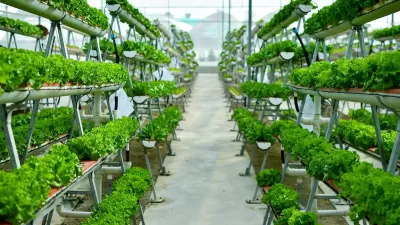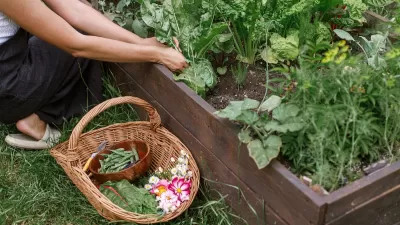The Mandan, Hidatsa, and Arikara Nation in North Dakota is launching a massive greenhouse project to regain their agricultural heritage and achieve food sovereignty.

The Mandan, Hidatsa, and Arikara Nation in North Dakota is revitalizing its agricultural roots through a substantial greenhouse complex, set to become one of the largest in the United States. As reported by Jack Dura, this initiative aims to grow leafy greens, tomatoes, and strawberries, allowing the tribe to achieve greater food sovereignty decades after their fertile lands were flooded by the construction of the Garrison Dam. The first phase of the project, costing $76 million, includes a 3.3-acre greenhouse and additional facilities, with plans to expand to 14.5 acres, significantly enhancing the tribe's capacity to produce fresh produce.
This greenhouse project is part of a broader movement to increase food sovereignty among Native American tribes, spurred by supply chain disruptions during the COVID-19 pandemic. By investing in local food systems, tribes across the nation are reclaiming their ability to feed their communities independently. The Mandan, Hidatsa, and Arikara Nation's greenhouse will support the Fort Berthold Indian Reservation's 8,300 residents and provide produce to other reservations and food banks in isolated areas. The operation is expected to create 30 to 35 jobs initially, with production goals of up to 15 million pounds of food annually.
A key element of this initiative is the use of natural gas resources from North Dakota's Bakken oil field. The tribe plans to capture and compress natural gas, traditionally flared off, to heat and power the greenhouse and produce fertilizer, addressing environmental concerns and reducing waste. This project not only reconnects the tribe with their agricultural heritage but also leverages modern resources to ensure sustainable and independent food production for the future.
FULL STORY: North Dakota tribe goes back to its roots with a massive greenhouse operation

Alabama: Trump Terminates Settlements for Black Communities Harmed By Raw Sewage
Trump deemed the landmark civil rights agreement “illegal DEI and environmental justice policy.”

Study: Maui’s Plan to Convert Vacation Rentals to Long-Term Housing Could Cause Nearly $1 Billion Economic Loss
The plan would reduce visitor accommodation by 25% resulting in 1,900 jobs lost.

Planetizen Federal Action Tracker
A weekly monitor of how Trump’s orders and actions are impacting planners and planning in America.

Waymo Gets Permission to Map SF’s Market Street
If allowed to operate on the traffic-restricted street, Waymo’s autonomous taxis would have a leg up over ride-hailing competitors — and counter the city’s efforts to grow bike and pedestrian on the thoroughfare.

Parklet Symposium Highlights the Success of Shared Spaces
Parklets got a boost during the Covid-19 pandemic, when the concept was translated to outdoor dining programs that offered restaurants a lifeline during the shutdown.

Federal Homelessness Agency Places Entire Staff on Leave
The U.S. Interagency Council on Homelessness is the only federal agency dedicated to preventing and ending homelessness.
Urban Design for Planners 1: Software Tools
This six-course series explores essential urban design concepts using open source software and equips planners with the tools they need to participate fully in the urban design process.
Planning for Universal Design
Learn the tools for implementing Universal Design in planning regulations.
Caltrans
Smith Gee Studio
Institute for Housing and Urban Development Studies (IHS)
City of Grandview
Harvard GSD Executive Education
Toledo-Lucas County Plan Commissions
Salt Lake City
NYU Wagner Graduate School of Public Service





























